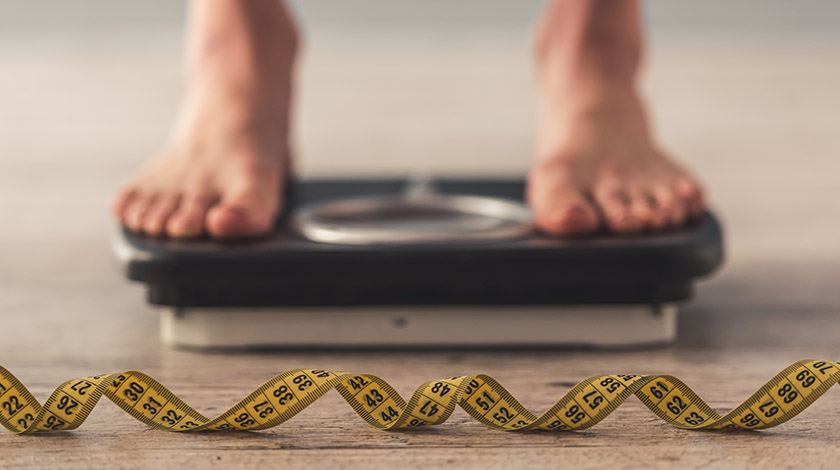As you probably know, irregular sleep patterns and insufficient sleep can wreak havoc on our health. Low-quality sleep has been linked to heart disease, lowered immunity and depression.1 But did you know that the amount and quality of sleep we get actually affect our weight as well?
Sleep and your waistline

Studies have shown that sleeping 5 hours or less per night contributes to weight gain. In contrast, sleeping 7 hours per night is linked to weight maintenance.2 Insufficient sleep can increase our body’s levels of ghrelin — a hormone linked to feelings of hunger, and which suppresses feelings of satiety.3 Thus, when we’re sleep-deprived, our heightened ghrelin levels may trick us into eating more than we need.
Insufficient sleep also reduces our levels of leptin — a hormone that signals to our brain when we are full. To put it simply, when our leptin levels drop, we simply might not know when to stop!3
Too much of a good thing
While a chronic lack of sleep contributes to weight gain, people at the other extreme aren’t spared an expanding waist-line. Researchers have discovered that those who regularly sleep more than eight hours per night experience greater weight gain than those who sleep seven hours.
The reason is a simple, practical one. If you’re habitually indulging in late-morning lie-ins, you’ve less time to be up and about and burn calories. And if you’re still eating the same amount of food despite a lack of physical activity, it’s a matter of time before you pile on the pounds.
Better sleep for a slimmer physique

In sleep, quality is just as important as quantity. If you’re getting the recommended seven to eight hours of sleep per night, but still feel tired or struggle with your weight loss program, your sleep quality may be to blame. Here are some common causes and solutions of poor-quality sleep.
- Sleep apnea. Sufferers experience interrupted breathing during their sleep. Common signs and symptoms include a dry throat on waking up and feeling chronically tired. If you suspect you suffer from sleep apnea, speak to a doctor.4
- Stress. If you’re working right up till the last minute before you collapse into bed, you probably have trouble getting to sleep because the anxieties of the day are still weighing on your mind. Set aside at least 15 minutes before bed to read, chat with your family or simply relax.5
- Lack of exercise. Those who regularly exercise generally enjoy better-quality sleep.6 Exercise releases serotonin, another hormone that is associated with deeper and more restful sleep.
Sleep is such an essential component of any weight loss program. Don’t neglect sleep in your search for a slimmer physique!
Sources
- Sleep Deprivation in Hong Kong, visited 8 November 2017.
- Patel SR, Hu FB. Short sleep duration and weight gain: a systematic review. Obesity (Silver Spring). 2008 Mar;16(3):643-53.
- Schmid SM, Hallschmid M, Jauch-Chara K, Born J, Schultes B. A single night of sleep deprivation increases ghrelin levels and feelings of hunger in normal-weight healthy men. J Sleep Res. 2008 Sep;17(3):331-4.
- Quan SF, Budhiraja R, Parthasarathy S. Is There a Bidirectional Relationship Between Obesity and Sleep-Disordered Breathing? J Clin Sleep Med. 2008 June 15; 4(3): 210–211.
- Sleeping Well.The Royal college of Psychiatrists. Visited 17 November 2014.
- Loprinzia PD, Cardinalb BJ. Association between objectively-measured physical activity and sleep NHANES 2005–2006. Mental Health and Physical Activity. 2011 4 (2): 65-69.

